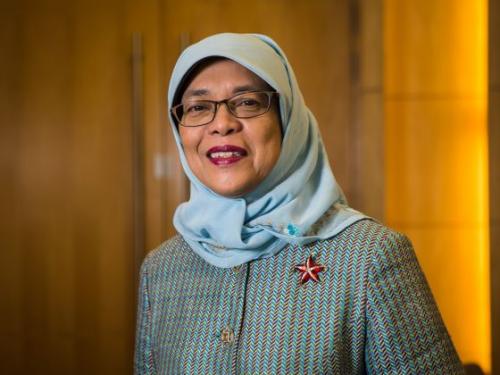Halimah set to be named S’pore’s next President

Halimah set to be named S’pore’s next President
Unlike previous presidential elections, Singapore’s elections this year had an additional stipulation – all candidates must be Malay. Article 19B of the Singapore Constitution defines a Malay as "any person, whether of the Malay race or otherwise, who considers himself to be a member of the Malay community and who is generally accepted as a member of the Malay community by that community". This rather open definition allows people of Javanese or Pakistani descent, for example, to be considered “Malay”. Out of five candidates, only one qualified (two did not declare themselves to be Malay, and another two did not meet the requisite minimum of S$500 million in their firms’ shareholders’ equity). This result has been met with a lot of criticism of Singaporeans, including many who suspect that the government is pulling the strings to elect a candidate they favor. Singapore epitomizes social engineering in many ways (e.g. in its housing policies that set racial quotas for public apartments), however, this year’s presidential elections has really cast a spotlight on what it means to be part of a certain racial or ethnic group, and its role in society.
Singapore is in a unique position where its national language is Malay for historical reasons, but Chinese make up the majority of the population by far (~75% vs ~14%). Recently fired up discussions on racial discrimination and microagressions in multiracial Singapore, including the underrepresentation of Malays and other minority groups in the government, has led to the current situation. However, what does it mean to be Malay? The fact that one of the two conditions is that one must identify themselves as Malay brings up interesting questions. Can anyone identify themselves carelessly as one ethnic group or another? What if they only do so when it is advantageous for them? And who has the right to represent the Malay community to accept others as part of that community?
Singapore’s definition is also very different from, for example, how a Filipino is determined be a mestizo or otherwise based on their gender and who they marry. Nor does it officially consider certain aspects (food, language) that are usually integral to an ethnicity. One of the candidates is of Indian heritage and does not speak Malay, but he still received a Malay Community Certificate. Singapore’s broad ethnic categories allows for multiculturalism while fostering wider “national” identities. People identify themselves as “Singaporean” rather than “Chinese-Singaporean”, whereas in places like America it’s common to identify people in terms of both their race and nationality.
While Madam Halimah is extremely qualified and well respected by most Singaporean, her election has been marred by the overly deliberate nature and racial controversy of the elections. It is a shame that there will always be people who will doubt her legitimacy.
Comments
In the case of Madame Halimah, there seems to be an underlying tension in this debate between multiracialism and meritocracy, both of which underpin Singaporean statehood. I think you have gone in the right direction to reiterate the point about ethnic identification - how can one identify oneself as Malay, Chinese, Pakistani etc. and what are the politically strategic advantages one can derive from doing so. It seems that in Singapore, even though ethnic categorizations are reinforced in a way that make them feel “real,” people developed at the same time a fluid identity that can fit in different boxes in different circumstances. It will be worthwhile to see the big picture of ethnic representation in Singaporean politics and better understand the reasoning behind this year’s reservation of the office for ethnic Malay.
Pages